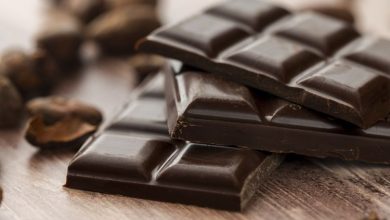Intermittent fasting may slow hair growth, study finds

- Intermittent fasting is an eating pattern that has been linked to various potential health benefits such as weight loss and reduced inflammation.
- Past studies have also shown potential negative impacts of following this dietary pattern.
- A new study says that intermittent fasting may slow hair growth via both human and animal models.
About 13% of Americans follow intermittent fasting, a dietary pattern featuring time-restricted eating in which one eats for a certain amount of time each day and fasts for the rest of the day.
Over the last few years, researchers have found that intermittent fasting may offer health benefits such as lowered risk for type 2 diabetes, cardiovascular disease, and Alzheimer’s disease.
However, past studies also show potential downsides to following this type of diet, such as a higher risk for gallstones, cardiovascular death, and colon cancerTrusted Source.
Now, a new study recently published in the journal CellTrusted Source reports that intermittent fasting may slow hair growth via both human and animal models.
Intermittent fasting slows hair growth in mice
For this study, researchers began with a mouse model. The mice were shaved and then fed either one of two intermittent fasting patterns — 16:8 (eight hours eating, 16 hours fasting) or alternate-day fasting — or the control group that had unlimited access to food.
Upon analysis, scientists found the mice following intermittent fasting only had partial hair regrowth after 90 days, compared to the control group that had regrown most of its hair after 30 days.
Researchers believe this is happening because hair follicle stem cells (HFSCs) required for hair growth cannot handle the oxidative stress caused by the body switching from using glucose to fat during intermittent fasting.
Slower hair regrowth in humans after intermittent fasting
Researchers had similar results when conducting a small clinical trial of 49 healthy young adults — following an intermittent fasting diet with 18 hours of fasting each day resulted in a hair growth speed reduction of 18% compared to controls who were eating a regular diet.
“The human population is very heterogeneous, so the effects might be different for different people,” Bing Zang, PhD, assistant professor and principal investigator at the School of Life Sciences at Westlake University in China and senior author of this study says in a press release.
“Mice also have a very high metabolic rate compared with humans, so fasting and metabolic switching have a more severe effect on mouse HFSCs. We see a milder effect in humans — there are still apoptotic stem cells, but many HFSCs survive. So, there is still hair regrowth; it’s just a little bit slower than usual,” he explains.
Further studies on humans needed
Medical News Today spoke with two doctors associated with Hackensack Meridian Health in New Jersey about this study.
Jennifer Cheng, DO, chief of endocrinology at Hackensack Meridian Jersey Shore University Medical Center in New Jersey, told MNT that as intermittent fasting is a commonly used method for restricting dietary intake and many patients utilize it for weight loss, we should be aware of the side effects that may occur.
“It is interesting that the mice had such significant differences in the hair growth with the different diet,” Cheng commented. “More studies in humans are needed to see if the information is applicable.”
MNT also spoke with Hans J. Schmidt, MD, chief of bariatric surgery and director of the Center for Weight Loss and Metabolic Health at Hackensack University Medical Center, about this research.
“We frequently see some degree of hair loss in patients during a period of rapid weight loss, regardless of which method they use,” Schmidt explained.
“These studies emphasize that the effects of intermittent fasting on hair follicle stem cells are independent of caloric reduction and circadian rhythm changes and other mechanisms may explain the hair loss in intermittent fasting regardless of weight loss,” Schmidt continued.
“More research is needed to understand the potential effects of intermittent fasting on hair loss and regrowth. Perhaps certain modifications or supplements added to the diet may produce the effects of intermittent fasting without the hair loss,” he added.
How to support hair growth with nutrition
For readers following an intermittent fasting diet and are worried about or experiencing hair loss, Monique Richard, MS, RDN, LDN, a registered dietitian nutritionist and owner of Nutrition-In-Sight, said that regardless of the diet or dietary pattern an individual follows, it is essential to obtain optimal nutrition for all the body’s systems and continuity.
“Assessing with a registered dietitian nutritionist (RDN) if the dietary intake is appropriate for the needs of an individual is essential as well as assessing if timing and type of fasting (i.e. 8 or 12 hours or a day between) may be appropriate for that person based on numerous factors such as other health considerations, goals, genetic predisposition, lifestyle, activity, and access to food are just a few,” Richard explained.
“We want it all, right? — a svelte body, lustrous hair, luminous skin, nails, and that ‘je ne sais quoi’. It usually can not be bought with an overnight treatment but does require a consistent investment on the daily in what you consume and how. Nourish your body ‘on the regular,’ regularly,” Richard said.
“Be careful to avoid the ever-so-popular supplements with 2000% or more of the daily value of biotin and other nutrients — they may deplete other essential nutrients. Look for nutrient-dense foods to sit down and enjoy at a table and with loved ones, not manufactured supplements engulfing your hard-earned cash,” she added.
Reference:
https://www.medicalnewstoday.com/articles/intermittent-fasting-may-slow-hair-growth-study




